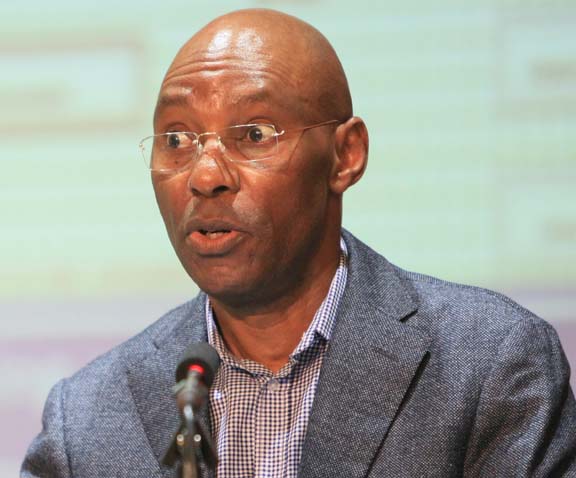Bank of Uganda Deputy Governor, Michael Atingi-Ego
MPs on Parliament’s Budget Committee have quizzed officials from the Bank of Uganda (BoU), the country’s Central Bank, for attempting to usurp powers of Parliament, when they extended a loan of Shs3Trn to Government without seeking parliamentary approval.
While appearing before the Committee, Bank of Uganda Deputy Governor, Michael Atingi-Ego informed Parliament that the Shs3Trn funding was extended to Government through liabilities of matured securities that the Central Bank paid on behalf of government, but despite the promise to have the money paid in two years, no penny has been paid with less than two months to the end of the Financial year in June 2023.
The meeting followed a concern raised by lawmakers who questioned the arrangement between the Central Bank and Government, warning that the irregular lending to government would lead to the depletion of the national reserves.
However, Deputy Governor, Bank of Uganda defended the decision to pay the securities on behalf of the Ministry of Finance, revealing that the Central Bank and Ministry of Finance have a memorandum of understanding where Bank of Uganda is required to redeem maturing domestic security obligations, after which Government must pay the central Bank for these redemptions, but in 2020/2021, the Ministry of Finance found difficulty in honouring its obligations to pay for the securities due to the effects of the COVID-19 Pandemic that saw a reduction in revenue collections, amidst growth in expenditure, prompting the Ministry of Finance to inform the Central Bank of plans to delay payment of its liabilities so as to focus on the fight of the pandemic.
“The Government therefore requested to delay the repayment for security redemptions in order to meet these more pressing needs that got to do with the health, lives and livelihood of the people of Uganda. So whereas Bank of Uganda would have preferred to go with the spirit of the MOU, we had to consider the circumstances at that time,” Atingi explained, adding: “These were extra-ordinary, they were unprecedented and they were extremely urgent. So accordingly, the repayments due to Bank of Uganda for the redemption of the maturing debt by end of 2020/2021 amounted to Shs3Trn.”
The Deputy Governor informed the Committee that a new arrangement was struck where the Ministry of Finance was meant to repay Shs2.5Trn in two installments but the first installment hasn’t been paid.
“But from Bank of Uganda point of view, the Government should really repay all the outstanding stock debt and all the maturing obligations promptly because any further delays would jeopardize the effective conduct of the monetary policy, risking the potential buildup of the inflation pressures in the economy,” Ating-Ego said.
Geoffrey Ekanya (Tororo North) described the arrangement as indirect borrowing, wondering why the Central Bank didn’t seek Parliamentary approval to engage in such an arrangement with Ministry of Finance.
“You are an institution of government, you have no protection; read the Constitution and the Public Finance Management Act, it requires the resolution of Parliament to authorize Ministry of Finance to come to you, insist on that,” said Ekanya, noting that the extension of Shs3 trillion to Finance Ministry was indirect borrowing.”
Similar sentiments were shared by Muwanga Kivumbi (Butambla County) who argued, “We are very careful not to turn Bank of Uganda, under the service agreement not to become a lender of Government. The worry around is that under this service agreement, Government is beginning to borrow from you without parliamentary approval because any borrowing in Uganda has to be approved by Parliament and you enter an agreement to lend in a clever way, eroding away powers of Parliament which are exclusive to Parliament. So we want to know the full details of the service level agreement whether you have the mandate to do what you do.”





